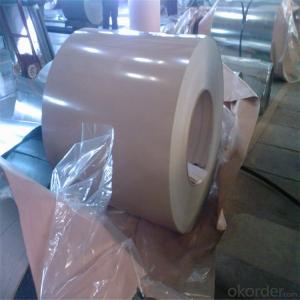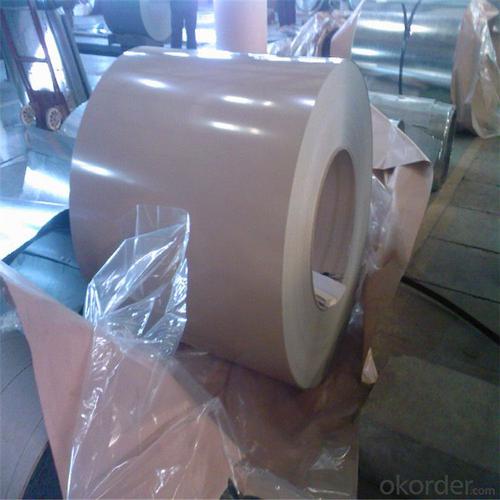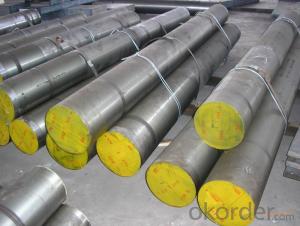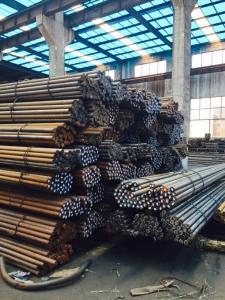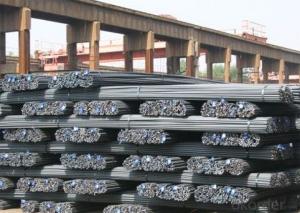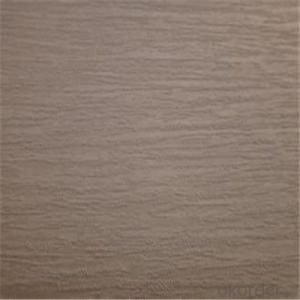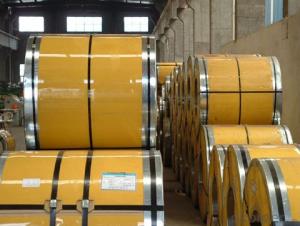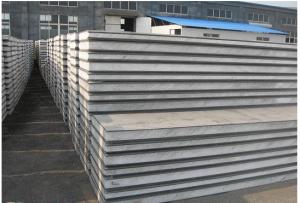PU Insulated Panels Used PPGI Steel
- Loading Port:
- Tianjin
- Payment Terms:
- TT OR LC
- Min Order Qty:
- 100 m.t.
- Supply Capability:
- 500000 m.t./month
OKorder Service Pledge
OKorder Financial Service
You Might Also Like
Specification
PU Insulated Panels Used PPGI Steel
Description of PU Insulated Panels Used PPGI Steel
Product | PPGI/PPGL |
Capacity | 5,000 tons/month |
Base material | Hot dipped galvanized steel |
Thickness | 0.2-2.0mm |
Width | 600-1250mm(according to your need) |
Coil Weight | 3-6tons |
Quality | SGCC, DX51D |
Color | RAL No. or customers samples’ color |
Zinc-coating | 30g/m2-180g/m2 |
Coil ID | 508mm/610mm |
Technique | Cold rolled—hot dipped galvanized—color coated |
Painting | Top painting:15~25μm |
Back painting: 6~10μm | |
Tolerance | Thickness: +/-0.02mm |
Width:+/-2mm | |
Shipment time | within 15-45 workdays |
Payment | T/T, L/C at sight |
Packing | Standard export packing |
The special order can be negotiated. | |
Application of PU Insulated Panels Used PPGI Steel
APPLICATION OF OUR PREPAINTED STEEL | ||||||||||
Construction | Outside | Workshop,agricultural warehouse,residential precast unit | ||||||||
corrugated roof,roller shutter door,rainwater drainage pipe,retailer booth | ||||||||||
Inside | Door,doorcase,light steel roof stucture,folding screen,elevator,stairway,ven gutter,Construction Wall | |||||||||
Electrical applicance | Refrigerator,washer,switch cabnet,instrument cabinet,air conditioning,micro-wave owen,bread maker | |||||||||
Fuiniture | Central heating slice,lampshade,chifforobe,desk,bed,locker,bookself | |||||||||
Carrying trade | Exterior decoration of auto and train,clapboard,container,isolation lairage,isolation board | |||||||||
Qthers | Writing panel,garbagecan,billboard,timekeeper,typewriter,instrument panel,weight sensor,photographic equipment | |||||||||
Products Show of PU Insulated Panels Used PPGI Steel

Product Advantages
1.With nearly 20 years experience in prepainted steel, accommodate different marketdemands. | ||||||||||||||
2.'Quality first, service first' is our business aim; 'The good faith get respect,cast quality market' is our Business philosophy . | ||||||||||||||
3.Having two series producttion line,with the abbual production capacity of 240000 tons. | ||||||||||||||
4.Exceed International ISO9001:2008&ISO14001:2004 quality and environmental standards | ||||||||||||||
5.Meet with ROHS standard |
Company Information
CNBM International Corporation is the most important trading platform of CNBM group.
Whith its advantages, CNBM International are mainly concentrate on Cement, Glass, Iron and Steel, Ceramics industries and devotes herself for supplying high qulity series of refractories as well as technical consultancies and logistics solutions.


F A Q
1, Your advantages?
professional products inquiry, products knowledge train (for agents), smooth goods delivery, excellent customer solution proposale
2, Test & Certificate?
SGS test is available, customer inspection before shipping is welcome, third party inspection is no problem
3, Factory or Trading Company?
CNBM is a trading company but we have so many protocol factories and CNBM works as a trading department of these factories. Also CNBM is the holding company of many factories.
4, Payment Terms?
30% TT as deposit and 70% before delivery.
Irrevocable L/C at sight.
5, Trading Terms?
EXW, FOB, CIF, FFR, CNF
6, After-sale Service?
CNBM provides the services and support you need for every step of our cooperation. We're the business partner you can trust.
For any problem, please kindly contact us at any your convenient time.
We'll reply you in our first priority within 24 hours.
- Q: What are the main factors affecting the strength of special steel?
- The main factors affecting the strength of special steel are the composition of alloying elements, heat treatment processes, and the grain size of the steel.
- Q: What are the different surface defects in special steel?
- Some common surface defects in special steel include scale, pits, scratches, cracks, and inclusions. Scale refers to the formation of oxide layers on the surface, while pits are small depressions caused by corrosion or mechanical damage. Scratches can occur during handling or processing, while cracks are often due to excessive stress or improper heat treatment. Inclusions are foreign particles or impurities embedded in the steel, which can impact its overall quality and performance.
- Q: What are the main characteristics of electrical steel?
- Electrical steel, also known as silicon steel or transformer steel, offers several key features that make it suitable for use in electrical appliances and power equipment. Firstly, it possesses a high magnetic permeability, enabling efficient magnetic flux conduction and reducing energy losses in transformers, motors, and generators. Secondly, electrical steel demonstrates low core loss, encompassing hysteresis loss and eddy current loss. Hysteresis loss refers to the dissipation of energy caused by the reversal of magnetic domains within the material, while eddy current loss arises from circulating currents induced by alternating magnetic fields. The low core loss property of electrical steel ensures high energy efficiency and minimizes heat generation in electrical devices. Another significant characteristic of electrical steel is its high electrical resistivity, which diminishes the magnitude of eddy currents and further reduces energy losses in electrical equipment. Additionally, it possesses a high saturation induction, denoting its ability to reach maximum magnetic flux density. This characteristic enables transformers and motors to function at higher magnetic flux densities, resulting in more compact and efficient designs. Moreover, electrical steel exhibits high mechanical strength, essential for withstanding the stresses and vibrations encountered in electrical devices. It also demonstrates good thermal conductivity, facilitating efficient heat dissipation and enhancing the overall performance and longevity of electrical equipment. In conclusion, electrical steel boasts high magnetic permeability, low core loss, high electrical resistivity, high saturation induction, high mechanical strength, and good thermal conductivity. These properties make it an ideal material for various electrical applications, offering efficiency, reliability, and performance in power generation, transmission, and utilization.
- Q: What are the main alloying elements used in special steel?
- The main alloying elements used in special steel include chromium, nickel, molybdenum, vanadium, and tungsten.
- Q: What are the properties of magnesium alloys?
- Magnesium alloys possess several important properties. They have a low density, making them lightweight and ideal for applications where weight reduction is crucial. They exhibit high strength-to-weight ratio, which makes them strong and durable. Magnesium alloys also have good heat dissipation properties, making them suitable for applications that require efficient cooling. They have excellent corrosion resistance, particularly when properly coated or treated. Additionally, magnesium alloys demonstrate good machinability and can be easily formed into various shapes and components.
- Q: What are the main advantages of using special steel in the food processing industry?
- The main advantages of using special steel in the food processing industry are its exceptional strength and durability, resistance to corrosion and bacteria growth, and ease of cleaning and maintenance. Special steel is highly resistant to wear and tear, ensuring longevity and reducing the need for frequent replacements. Its corrosion resistance properties prevent contamination and maintain the integrity of food products. Additionally, special steel's smooth surface and non-porous nature make it easy to clean, ensuring optimal hygiene standards in food processing facilities.
- Q: Can special steel be used in the production of fasteners?
- Yes, special steel can be used in the production of fasteners. Special steel, such as stainless steel or alloy steel, has enhanced properties such as corrosion resistance, high strength, or heat resistance, making it suitable for various applications in industries where fasteners are commonly used.
- Q: How does special steel perform in tooling applications?
- Special steel performs exceptionally well in tooling applications due to its unique properties and characteristics. Special steel, also known as tool steel, is specifically designed and manufactured to withstand the demanding conditions of tooling applications. One key advantage of special steel is its high hardness. Tooling applications often involve cutting, shaping, and forming hard materials, and special steel's hardness allows it to effectively withstand the extreme pressures and forces involved in these processes. This hardness also helps in retaining the sharpness of the cutting edges for extended periods, ensuring consistent and precise performance. Furthermore, special steel exhibits excellent wear resistance. Tooling applications typically involve repetitive and abrasive actions, which can cause considerable wear and tear on the tools. However, special steel's resistance to wear ensures that the tools maintain their performance and longevity, reducing the need for frequent replacements and downtime. Another important aspect of special steel is its excellent toughness. Tooling applications often subject the tools to sudden impacts and shock loads. Special steel's toughness enables it to absorb these impacts without fracturing or breaking, making it highly reliable and durable in such applications. Additionally, special steel offers good heat resistance and dimensional stability. Tooling applications often involve high temperatures, and special steel's ability to withstand heat prevents it from losing its hardness and other mechanical properties. This ensures consistent performance and dimensional stability, resulting in accurate and precise tooling. Lastly, special steel is also known for its corrosion resistance. Tooling applications may involve exposure to moisture, chemicals, or harsh environments, which can lead to corrosion and degradation of the tools. Special steel's corrosion resistance protects the tools from these corrosive elements, prolonging their lifespan and maintaining their performance. In conclusion, special steel is highly effective in tooling applications due to its hardness, wear resistance, toughness, heat resistance, dimensional stability, and corrosion resistance. These properties allow special steel tools to withstand the demanding conditions of tooling applications, ensuring reliable and long-lasting performance.
- Q: What are the requirements for special steel used in mining equipment?
- The mining industry imposes strict standards on the special steel required for mining equipment due to its challenging nature. Here are some of the essential criteria: 1. Strength and toughness: The mining equipment operates in harsh conditions, enduring heavy loads, impacts, and abrasion. The special steel must possess high strength to withstand these forces and maintain its structural integrity. Additionally, it should exhibit exceptional toughness to prevent fractures and withstand sudden shocks. 2. Resistance to corrosion: Mining operations often occur in corrosive environments, such as underground mines or near water bodies. The special steel utilized in mining equipment should display remarkable resistance to corrosion and oxidation to ensure its durability and prevent premature failure. 3. Resistance to wear: Mining equipment is exposed to abrasive substances, like rocks and minerals, which can cause significant wear. The special steel employed in mining equipment should possess excellent wear resistance properties to endure continuous abrasion and prevent premature deterioration. 4. Heat resistance: The mining equipment frequently experiences high temperatures due to friction during operation or proximity to heat sources. The special steel used in mining equipment should exhibit good heat resistance to retain its mechanical properties and avoid deformation or structural failure. 5. Fatigue resistance: Mining equipment undergoes repetitive and cyclic loading, which can lead to fatigue failure over time. The special steel utilized in mining equipment should possess high fatigue resistance to prevent cracking or failure under these cyclic loading conditions. 6. Weldability and machinability: The special steel employed in mining equipment should have favorable weldability and machinability to facilitate the fabrication and assembly processes. This ensures that the equipment can be easily manufactured, repaired, or modified as necessary. 7. Compliance with regulations: Mining equipment often needs to meet specific regulatory standards and certifications to ensure safety and environmental compliance. The special steel used in mining equipment should adhere to these regulations, guaranteeing the equipment's safe operation and absence of environmental hazards. In conclusion, the requirements for special steel used in mining equipment encompass high strength and toughness, corrosion resistance, wear resistance, heat resistance, fatigue resistance, weldability and machinability, and compliance with regulatory standards. These requirements ensure that the steel can endure the harsh conditions and demanding operations encountered in the mining industry.
- Q: How does special steel contribute to the manufacturing of molds and dies?
- Molds and dies are vital tools used across industries such as automotive, aerospace, and electronics to shape materials. They require durability, resistance to wear, and the ability to withstand high temperatures and pressures. Tool steel, also referred to as special steel, possesses distinct qualities that make it ideal for molds and dies. Firstly, its high hardness allows the tools to maintain their shape and surface integrity, even with extensive use and repetitive impacts. This hardness guarantees precision and accuracy in the final product. Furthermore, special steel exhibits excellent wear resistance, crucial as molds and dies come into contact with different materials during manufacturing. This wear resistance prolongs the lifespan of the tools, reducing the need for frequent replacements and minimizing production downtime. Moreover, special steel demonstrates good toughness, enabling it to absorb and endure high impact forces without fracturing or breaking. This is particularly important for molds and dies, which often undergo significant stress during manufacturing, especially when dealing with high-pressure or extreme temperature materials. Special steel also boasts high heat resistance, enabling molds and dies to withstand elevated temperatures used in certain manufacturing processes, such as injection molding or metal forging. This heat resistance prevents warping or loss of shape, ensuring consistent and accurate production. Additionally, special steel is easily machined and shaped, allowing manufacturers to create intricate designs for molds and dies. This versatility is essential as different industries require unique tool designs to meet specific manufacturing needs. In conclusion, special steel is crucial for manufacturing molds and dies due to its high hardness, wear resistance, toughness, heat resistance, and machinability. These unique properties enhance the durability, precision, and efficiency of molds and dies, ultimately improving the quality and productivity of various manufacturing processes.
Send your message to us
PU Insulated Panels Used PPGI Steel
- Loading Port:
- Tianjin
- Payment Terms:
- TT OR LC
- Min Order Qty:
- 100 m.t.
- Supply Capability:
- 500000 m.t./month
OKorder Service Pledge
OKorder Financial Service
Similar products
Hot products
Hot Searches
Related keywords
